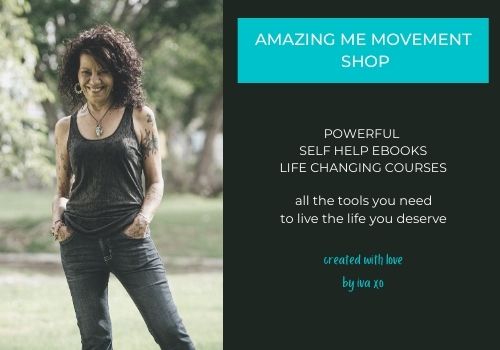According to a 2018 survey from the Economist, one out of every four Americans consistently feels lonely, left out, and a lack of companionship in their lives. In today’s article by guest author Justin, he’s going to discuss the importance of prioritizing relationships.
There are many factors that play into the rise of the loneliness epidemic, including a decreased emphasis on social connection, and the rise of technology that keeps us isolated.
But perhaps the most fundamental problem is a lack of understanding about what it really takes to create a fulfilled, happy life.
We often chase things that we believe will make us happy – more money, a more prestigious career, nicer cars, nicer clothes – all in the pursuit of a life that we can look back on and feel proud of.
Yet, research on happiness tells us that while striving for goals is important, it may not bring you the happiness that you’re looking for.
This article will take a look at the stunning effects of loneliness and how putting less emphasis on your professional and financial goals may be the very thing that makes achieving them easier.
My Struggle With Loneliness
I’ve always felt like I’ve had this fire in me that leads to relentless pursuit of my goals.
Throughout high school and college, I always had something in motion. Whether it was trying to master day trading, growing my blog, trying to start a marketing agency from scratch, there was always something for me to do.
I was addicted to the hustle of reaching my goals, because that’s what I believed would bring me happiness, but this chase often resulted in the opposite effect. There’s a specific timeframe in my life where my ambition was at an all-time high.
At the time, I was trying to build my own marketing agency. And much to the chagrin of my parents, I had dropped out of college and moved back in with them to put all of my focus into the business.
I was a wide-eyed, ambitious 19 year old kid who was convinced that going back home and depriving myself of all of the connections I had built in college was the only way that my new venture was going to work out.
For about 18 months, here’s what a typical week would look like for me.
Monday to Friday was all hands on deck. I’d routinely work 12-14 hour days that involved sending emails and Facebook messages to potential prospects, taking sales calls, and building my presence on social media.
Saturday and Sunday was essentially the same story. I didn’t go out with friends. I didn’t expand my comfort zone and meet new people.
On rare occasions, I’d take the day off to go play golf or go out drinking with my friends, but this wasn’t before I had already blown them off several times prior due to work commitments
My life was a constant grind towards success, which meant it was inevitable for the closeness of my personal relationships to suffer.
When people asked me what I had been up to, the only thing I could muster up was, “I’ve just been working on building the agency, how about you?”
When I asked other people this question, they’d say things like:
- “I actually just went to Los Angeles for a week with a couple of my friends from college. We caught a Laker game while we were there.”
- “Me and my friend just did a Monterey trip and played four rounds of golf in four days. It was so incredible
I’m ashamed to admit it, but when people told me what they had been up to, I actually felt sorry for them. Can you imagine that? Me feeling sorry for them?
The person who lives at home, works seven days a week, and barely sees anyone besides their parents feeling sorry for someone who just enjoyed a rich, fulfilling experience with people they care about.
As much as it pains me to admit that, it was the truth.
In my eyes, my burning desire to become a high-achiever justified my belief that I was better than they were. By what measure or standard was I basing this off of? My arrogant, self-centered view of myself.
And while this belief kept me going for a little while, eventually the facade lifted.
The belief that it was okay to deprive myself of social connection in the pursuit of my goals had done nothing except make me more anxious, more depressed, and more dissatisfied with the direction of my life.
This feeling of emptiness and loneliness carried over into my work. I started going to bed late and sleeping in more often. My motivation to work took a complete nose-dive, which of course hurt the business.
I’d go through the day looking for anything that would help me escape reality – binge-watching Netflix, scrolling through social media, porn, video games, etc.
Social isolation had turned me into the very person that I’d never wanted to become.
The Study That Completely Changed My Outlook On Happiness
One day, I typed the phrase “how to live a happy life” into the search bar on my computer in search of inspiration.
After looking through the search results, I decided to take a look at a TED Talk which described a study that had been running for 75 years analyzing adult development and the factors that lead to high life satisfaction.
The study followed two groups of men over 75 years and collected a ridiculous amount of data about their life. The participants were a diverse mix – some people hailing from the most poverty stricken areas in the inner city, and others who were top of their class at prestigious universities like Harvard and Yale.
The study has survived four different directors, each building upon the work of the previous director.
Robert Waldinder, the current director of the study and author of the TED Talk, has this to say about how extensive it is, “We don’t just send them questionnaires. We interview them in their living rooms. We get their medical records from their doctors. We draw their blood. We scan their brains. We talk to their children. We videotape them talking to their wives about their deepest concerns”.
What was the main lesson from the tens of thousands of pages of information gathered on the lives of these individuals?
Well, it wasn’t about fame, or money, or working harder and harder.
The biggest takeaway from the study is that loneliness kills, and that the biggest predictor of a healthy, happy life comes down to developing good personal relationships.
The participants who didn’t prioritize their personal relationships ended up less happy, less confident, and actually showed physical signs of aging much earlier than the others who did.
When the participants got to their 80’s, those who had developed deep personal relationships reported no change in their overall mood despite experiencing physical pain. However, those who were socially isolated reported a significant drop in the quality of their mood.
(if you’ve been thinking about changing your life or ready for a major life overhaul, check out my self help store-click the image below or the link hereand grab what you need now!)
All of the sudden, it hit me like a truck – if I continued down this path for the rest of my life, I’d end up lonely, depressed, and die with a deep sense of regret.
There were many more epiphany moments after that, but watching that Ted Talk was the initial spark that began to shift my view of what actually creates meaning and fulfillment.
What this miraculous study tells us above all is that good personal relationships act as a protective shield from the inevitable slings and arrows that life sends our way.
We’re wired for social connection and have a deep-rooted desire to belong. Strong ties to the people around us satisfy this desire and connect us to some of our strongest emotions – happiness, contentment, and calm.
We feel more at peace with ourselves and the direction of our lives knowing we have a reliable support network of people who care about both.
Prioritizing Relationships in 3 steps
The message that good, close relationships are important for our overall happiness and well-being is a message that’s as old as time.
So why is it so hard to take this advice, and so easy to ignore it?
Well, we’re human. What we’d really like is a quick-fix – something we can get that will make our lives good, and keep them that way.
The hard-work of tending to family and friends is not sexy or glamorous. It’s also lifelong and never-ending.
Here are a few of the changes that I’ve implemented into my life that have helped me improve the quality of my relationships.
#1 – Texting My Friends Every Day
First things first, I make sure to text someone from my social circle every single day.
When I came to the realization that it was time for me to start making my relationships a bigger priority, this was the habit that I started with.
It’s easy, it’s valuable, and I don’t have to leave my house – but the ripple effects of doing something like this can be pretty incredible.
Staying connected with the people opened up social opportunities that wouldn’t have otherwise happened had I not reached out. Those social opportunities exposed me to more people, which meant even more opportunity to branch out and make friends.
See how one simple habit produces a compounded outcome that’s massively positive?
When you start implementing this habit, you’ll realize just how many people would have loved to spend more time with you if you had the courage to reach out in the first place.

#2 – Scheduling Time With My Social Circle
The way you schedule your time has a direct influence on how you spend your time.
You may not be able to follow your daily schedule minute by minute but as long as the intention is there you’re more likely to take action.
That’s why during the weekends, there’s an 14 hour block where I have one phrase plugged in on Google Calendar – “Take a break and go spend time with your friends”
My weekends are reserved for developing relationships. That’s priority number one.
Doing so allows me to start the week off refreshed and motivated, and actually boosts my productivity too.
If keeping a calendar isn’t your thing, that’s fine. Just make sure that you spend some time each weekend doing something fun and engaging with your friends.
It could be something as simple as getting coffee, or something spontaneous like taking a weekend trip a few hours away.
Whatever it is, just go make it happen.

#3 – Asking Myself The Right Questions
Even though my priorities have shifted drastically, and I’m actually prioritizing relationships, sometimes I still catch myself wanting to stay home to finish up a blog post, or brainstorm new content ideas after getting invited to an impromptu social event.
Good relationships are incredibly important, but life happens. Sometimes you have deadlines to meet, and errands that need to be taken care of in a timely fashion.
When personal relationships became a bigger part of my life, I noticed myself coming across this problem quite often.
Whenever you find yourself engaging in an internal debate between your relationships and your to-do list, ask yourself this question:
“Is there a deadline for the activity that I’m about to do?”
If the answer is yes, then do what needs to be done. If the answer is no, then ask yourself this question next:
“Is this something that can wait until tomorrow, or is it in my best interest to get this done today?”
Sometimes there are things you truly need to do, and other times there are things that you want to do so you can check something off your to-do list.
Ambition is a beast that is impossible to tame. I still end up choosing work 70% of the time even after asking myself this series of questions, but that 30% is better than zero. And it’s these little breaks that actually have a significant impact on my motivation the following day.
Trusting whatever your gut tells you when answering these questions is the best course of action for perfecting the balancing act between your obligations and fostering good relationships.

If you implement these three changes into your life, you’ll be able to make time for the people who care about you while still engaging in the guilt-free pursuit of your professional and financial goals.
Bio:
Justin is a young, ambitious self-improvement nut who has a passion for providing practical, action-based advice that people can use to facilitate change in their life. For further advice on building better habits, check out his website here or grab his FREE E-Book: 3 Steps to Creating Better Habits. This thirteen-page e-book will provide you with a step-by-step plan formula for building habits that stick.
- 21-Day Self-Improvement Challenge: A Step-by-Step Guide – 26/01/2023
- 30 Brutal Narcissistic Abuse Quotes That Will Hit You in the Feels – 10/01/2023
- How to Find Self Love in 10 Beautiful Steps – 01/01/2023









Leave a Reply